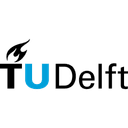This course is part of Circular Strategies for Sustainable Healthcare.
This comprehensive course equips healthcare professionals with the knowledge and tools to implement circular economy principles in medical settings. Students learn to reduce waste streams and costs while contributing to sustainable healthcare practices. The course combines academic insights with practical business cases and expert perspectives on circular economy strategies. Participants will master circular economy concepts from a hospital perspective, learn to establish green teams, and develop waste reduction recommendations. The program includes access to a free e-book and offers professional development points through accreditation by relevant healthcare associations.
Instructors:
English
English
What you'll learn
Master circular economy concepts from a healthcare perspective
Implement butterfly diagram approaches in hospital settings
Establish and manage effective green teams
Apply urban mining strategies in healthcare environments
Analyze and reduce hospital waste streams
Develop comprehensive waste reduction recommendations
Skills you'll gain
This course includes:
PreRecorded video
Graded assignments, quizzes
Access on Mobile, Tablet, Desktop
Limited Access access
Shareable certificate
Closed caption
Get a Completion Certificate
Share your certificate with prospective employers and your professional network on LinkedIn.
Created by
Provided by

Top companies offer this course to their employees
Top companies provide this course to enhance their employees' skills, ensuring they excel in handling complex projects and drive organizational success.





There are 7 modules in this course
This course provides a comprehensive understanding of circular economy principles applied to healthcare settings. The curriculum covers essential topics including the transition from linear to circular healthcare systems, waste reduction strategies, and green team implementation. Students learn about urban mining in hospitals, waste stream analysis, and practical recommendations for sustainable healthcare operations. The course emphasizes both theoretical knowledge and practical application through real-world case studies and expert insights. Special attention is given to EU Climate Law compliance and sustainable healthcare practices.
Basics of the Circular Healthcare Economy
Module 1
Circular Strategies Implementation
Module 2
Green Team Development
Module 3
Urban Mining in Healthcare
Module 4
Waste Stream Reduction
Module 5
Waste Reduction Recommendations
Module 6
Course Summary and Resources
Module 7
Fee Structure
Individual course purchase is not available - to enroll in this course with a certificate, you need to purchase the complete Professional Certificate Course. For enrollment and detailed fee structure, visit the following: Circular Strategies for Sustainable Healthcare
Payment options
Financial Aid
Instructors

4 Courses
A Pioneer in Sustainable Healthcare and Circular Medical Innovation
Bart van Straten is a distinguished expert in sustainable healthcare and circular economy, serving as a researcher and lecturer at TU Delft while leading multiple initiatives in medical device sustainability. After earning his PhD in Biomedical Engineering from TU Delft and an MBA from EU Business School, he has dedicated his career to transforming healthcare waste management and circular design. As co-founder of GreenCycl and a key figure at Van Straten Medical, a family company he helped transform into a circular production facility alongside his brother Niels, he has pioneered innovative approaches to medical waste reduction and reprocessing. His groundbreaking work includes developing the world's first recycling process for hospital waste, earning recognition in the Utrecht Circular Innovation Top 20. As chairman of the NEN Platform 'Sustainability and Medical Devices,' he co-authored the national NEN-guideline for reusing single-use medical devices during crises. Following his University Teaching Qualification in 2021, he has focused on integrating sustainability engineering and circular design into education at TU Delft, developing online courses for self-paced learning about circular economy. His research has led to significant publications on surgical waste reprocessing and life cycle assessment of medical devices, while his leadership extends to roles including membership on the supervisory board of the Leiden Instrument Makers School and various educational and government-related institutions. His work in the Field Lab, co-developed with Tim Horeman, has demonstrated innovative methods for reprocessing surgical waste into new medical products, embodying his personal and professional mission to minimize waste based on the principle that we borrow the world from our children rather than inheriting it from our parents.

4 Courses
A Pioneer in Sustainable Surgery and Medical Technology Innovation
Tim Horeman serves as Associate Professor in Sustainable Surgery & Translational Technology and Academic Portfolio Director of Medical Technology at TU Delft. His groundbreaking work focuses on developing sustainable surgical instruments and circular healthcare solutions. After earning his PhD in Biomedical Engineering from TU Delft, he has become a distinguished serial medtech entrepreneur, founding multiple successful companies including GreenCycl, MediShield, ForceSense, Surge-on Medical, and SuperSeton. His research has revolutionized surgical waste management, developing methods to transform medical waste into new instruments, including a breakthrough process for converting blue wrapping paper from operating rooms into new medical devices. His achievements earned him the Dutch Royal Engineer of the Year award in 2016 and the Prins Johan Friso Engineering award for contributions to medical technology and patient safety. As principal investigator on numerous international research projects, he has authored over 80 journal publications and holds 18 patent families in surgical innovation. His work with the Field Lab GreenCycl, developed in collaboration with Bart van Straten, has established the world's first recycling process for hospital waste. Currently, he leads the development of sustainable surgical instruments for advanced robot surgery, focusing on making lifesaving surgical innovations accessible in less wealthy regions.
Testimonials
Testimonials and success stories are a testament to the quality of this program and its impact on your career and learning journey. Be the first to help others make an informed decision by sharing your review of the course.
Frequently asked questions
Below are some of the most commonly asked questions about this course. We aim to provide clear and concise answers to help you better understand the course content, structure, and any other relevant information. If you have any additional questions or if your question is not listed here, please don't hesitate to reach out to our support team for further assistance.



